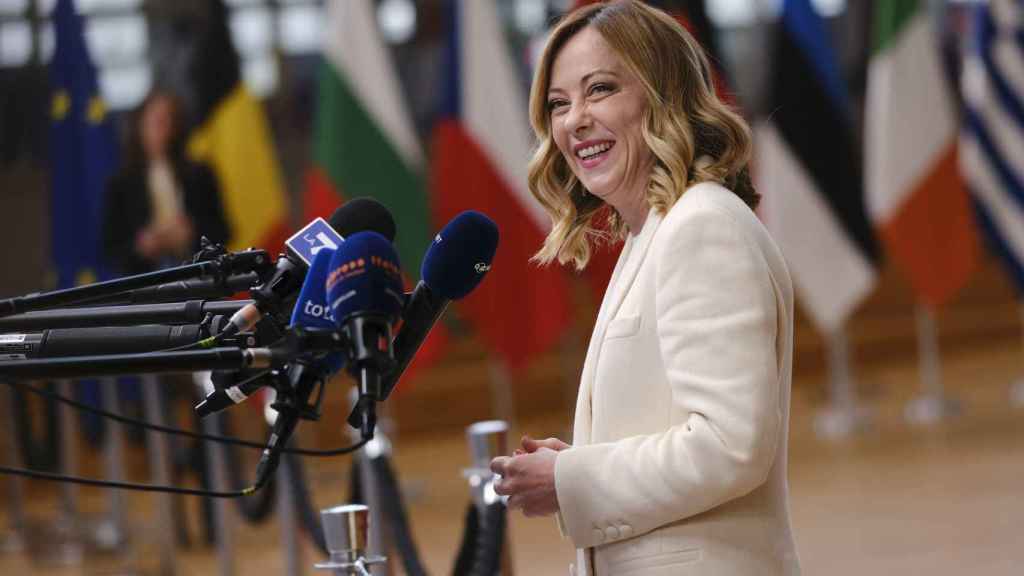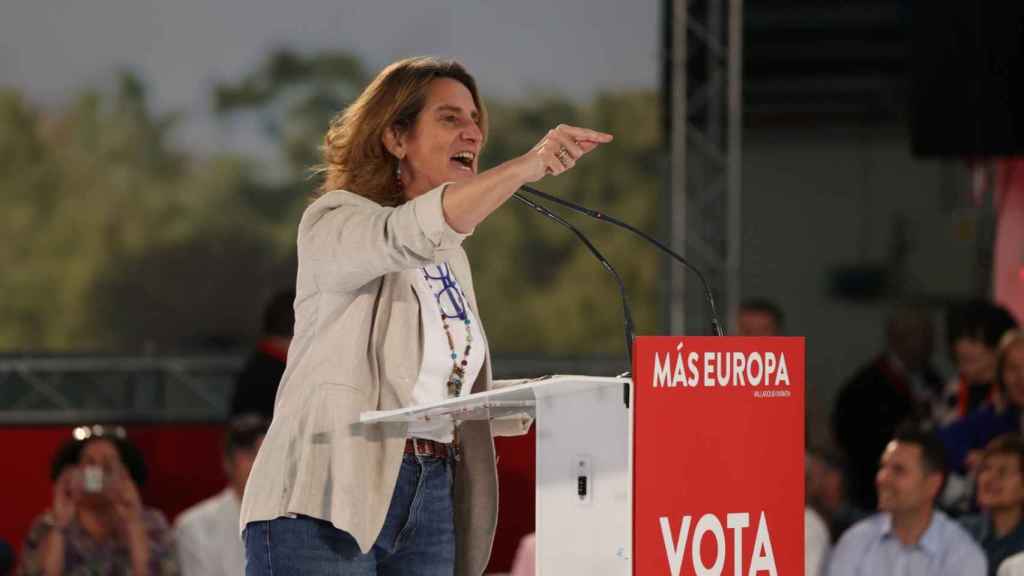In the absence of one common European public sphere, national issues dominate the campaign for the elections to the European Parliament (held between June 6 and 9), not only in Spain but in all Member States. There is no European race, but 27 divergent national races.
However, the result of the elections will have a direct impact on the political priorities of the European Union for the next legislature 2024-2029. A period marked by Vladimir Putin’s war in Ukraine, the possible return of Donald Trump in the United States and the growing aggressiveness of China on the international scene.
What powers does the European Parliament have?
The European Parliament is one of the three main pillars of the European Union (along with the Commission, the executive arm and the Council, which represents the 27 Governments) and the only institution elected by direct suffrage since 1979. Unlike national parliaments, the European Parliament lacks legislative initiative and its role is limited to negotiating and adopting (with the Council) the rules proposed by the Commission. It also approves the community budget and must ratify (or overthrow) the president of the Commission. It has no powers in foreign policy or taxes.
The plenary session of the European Parliament in Strasbourg
A total of 360 million people Throughout the EU, 720 MEPs are being called to the polls to elect (15 more than in 2019), who are distributed among the Member States based on their population. Germany is the country that sends the most deputies to Strasbourg (96) and Cyprus, Luxembourg and Malta the least (6). Spain chooses 61.
What do surveys say at European level?
All the polls predict a sharp turn to the right in the European Parliament in the next legislature, which will be the tenth. He European People’s Party (EPP) will again win the elections clearly, (with around 171 seats), well ahead of the socialists (S&D), who obtain 142 seats. The two majority forces maintain their positions compared to the previous 2019 elections, while the liberals of Renew collapse (up to 76 seats, compared to the current 102) and especially the greens (41 seats, compared to the current 72), according to the survey of surveys published daily Political.
But the big news is the rise of radical right populist forces across the continent, who could obtain more than 25% of the seats, becoming the big winners of the elections. The extreme right forces aspire to be the first political force in the European elections in countries such as France, Italy, Hungary, the Netherlands, Austria or Belgium.
Meloni or Le Pen, who will lead the radical right?
Among radical right groups, polls place the European Conservatives and Reformists in first place (75 seats, compared to the current 69), the faction led by the Italian prime minister, Giorgia Meloni, and in which Vox, the Poles of Law and Justice or Éric Zemmour’s Reconquista are also active. They could be joined after the elections by Hungarian Viktor Orbán’s Fidesz, which is now listed as not registered.

The Italian Prime Minister, Giorgia Meloni, talks to the press upon her arrival at the European Council last April
For its part, the group Identity and Democracy (led by the leader of the National Rally, Marine Le Pen) would obtain 69 seats (compared to 49 seats) after the recent expulsion of Alternative for Germany, for being excessively radical. This group also includes Matteo Salvini’s League, Geert Wilders’ PVV, Austria’s FPÖ and the Flemish Vlaams Belang.
During the campaign, Le Pen has offered Meloni to join forces so that the extreme right is the second group in the European Parliament, surpassing the socialists. But so far all attempts by the radical right to form a supergroup have failed because of their deep internal differences on issues such as the position towards Russia or economic policy and also because of personal quarrels.
How does the result of 9-J influence the distribution of senior EU positions?
The European elections represent the starting gun for the distribution of senior EU officials for the next legislature (presidents of the Commission, the Council and the European Parliament and High Representative for Foreign Policy), which will be decided at the European Council on June 27 and 28. The first names will begin to circulate at the informal dinner of European leaders on June 17.
According to the Treaty, it is the heads of State and Government who elect the President of the Commission “taking into account” the result of the European elections. So if the EPP victory is confirmed, Ursula von der Leyen – who this time has campaigned as a candidate for the popular party – would in principle have a clear path for a second term as head of the community Executive, since she also is the favorite of European leaders (although French President Emmanuel Macron has doubts).

The third vice president of the Government and PSOE candidate for the European elections, Teresa Ribera, this Saturday in Valladolid.
However, once confirmed by the leaders, Von der Leyen must be ratified by the European Parliament by absolute majority (361 votes). Popular, socialists and liberals – the great coalition that has supported him during his first mandate – would in principle add up to 389 votes, but in Strasbourg party discipline does not prevail and many defections are expected. That is what explains his approach to Meloni, since he wants to have the votes of the Brothers of Italy as a safety net.
In 2019, the German was confirmed by a margin of just 9 votes. And even then radical right-wing forces, such as Law and Justice or Fidesz, voted for him; and populists, such as the 5 Star Movement.
What position does Spain aspire to with Teresa Ribera?
Once the main piece is in place, which is the presidency of the Commission, the rest of the senior positions are distributed according to political, geographical and gender balances. This time, the socialists aspire to take over the presidency of the European Council, which is now held by the liberal Charles Michel. The favorite is once again the Portuguese Antonio Costaalthough it all depends on whether he is perceived as completely exonerated from the corruption scandal that forced him to resign.
The main candidate to replace Josep Borrell as head of community diplomacy is the Estonian liberal Kaja Kallas. For her part, the popular Roberta Metsola could repeat another two and a half years as president of the European Parliament. For the next legislature, the President of the Government, Pedro Sánchez, intends to place his third vice president and head of the list, Teresa Ribera, at the head of a powerful portfolio in the Community Executive that accumulates all the powers related to the fight against climate change and green industrial policy.
What impact will the rise of the far right have on European policies?
The climate portfolio to which Ribera aspires could be precisely the main victim of the shift to the right in the European Parliament after the 9-J elections. If radical right forces across the EU have anything in common, it is their rejection of the European Green Dealthe package of initiatives designed by the Von der Leyen Commission to achieve the goal of zero emissions by 2050.
The EPP has also opposed some of its measures, such as the controversial Nature Restoration Law. The green agenda has also been one of the factors that has sparked farmers’ protests in a large number of Member States in recent months. The new configuration of the European Parliament will make it very difficult for new green regulations to prosper and could reverse some already approved, such as the ban on diesel and gasoline cars in 2035.

Concentration of tractors on Spanish roads in February 2024.
Regarding home affairs, the turn to the right will mean a further tightening of migration and asylum policy. In terms of foreign policy, the influence of the European Parliament is very limited. Furthermore, Von der Leyen has set a red line for any collaboration with radical right forces that support Ukraine and oppose Vladimir Putin’s imperialism, which in her opinion excludes Le Pen or the Alternative for Germany.
When will the results of 9-J be known?
The European Parliament plans to release a first estimate of the composition of the new chamber at approximately 8:15-8:30 p.m. on Sunday. The first provisional results will be published at 11:15 p.m.








![[Img #74675]](https://thelatestnews.world/wp-content/uploads/2024/12/They-discover-a-new-class-of-X-ray-sources-in-the-150x150.jpg)




Add Comment